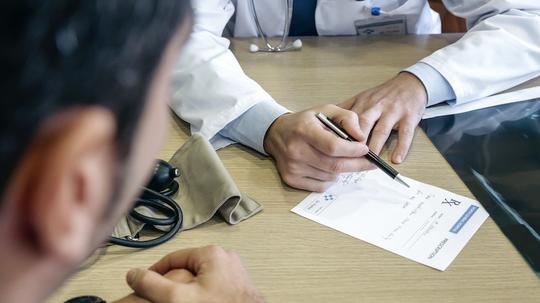
While there’s no good scientific evidence that learning styles actually exist, many people consider themselves visual learners—more inclined to retain information in the form of graphs, charts or videos. One Boston startup is counting on the fact that visually-inclined patients will likely be more able to understand post-surgery instruction when presented as animated content.
Coming out on Thursday after more than one year in stealth mode, Larissa Technologies is launched out of the MIT Sandbox Innovation Fund, which provides seed funding of up to $25,000 for student-initiated ideas. Two out of the three co-founders - Arthur Celestin and Jon Van Ornam - are resident physicians at Beth Israel and MGH; they teamed up with Erdem Yilmaz, an MIT-trained engineer.
The core idea of the company is simple: using artificial intelligence to speed up the production of one-minute long animated videos containing discharge information, hopefully reducing misunderstanding between doctors and patients who don’t speak English well.
"Most hospitals use paper-based discharge instruction today," Yilmaz said. "But patients are not really able to understand them."
The company's first customer is Signature Healthcare Brockton Hospital, a Brockton, Mass.-based non-profit facility serving Brockton and 21 surrounding municipalities. Since July, the Brockton staff has been using Larissa's technology to create animated instructional videos and help patients better understand post-surgery information.
“These educational animations are a simple way for post-surgical patients to move through the information at their own pace while answering questions that measure their understanding,” Melissa Killham, a nursing director at Brockton, said in a statement.
Here's an example of how an animated video produced by Larissa looks like:
A study by the National Institutes of Health found that patients who viewed an online video of their discharge instructions scored higher on their understanding of key concepts around their diagnosis and subsequent care, noting that patients considered videos "a helpful addition to standard care."
Yilmaz pointed out that instruction videos need to be short and on point, to match the attention span of a person who just had surgery. The software allows customization without being time consuming, Yilmaz explained: nursing assistents could easily create one and show it to patients through a tablet.
"You type what you want the animation to say in the video, say 'Create,' and then the animation comes up," Yilmaz said.
Currently, Larissa has been running on a grant provided by MIT, but now that it has a working prototype, it wants to expand to more customers in healthcare. In the next months, it also plans to fundraise.
"We are hoping to communicate with the State, because this is a very big opportunity for the State to save costs in health care, especially for hospitals that are serving underserved populations," Yilmaz said.








